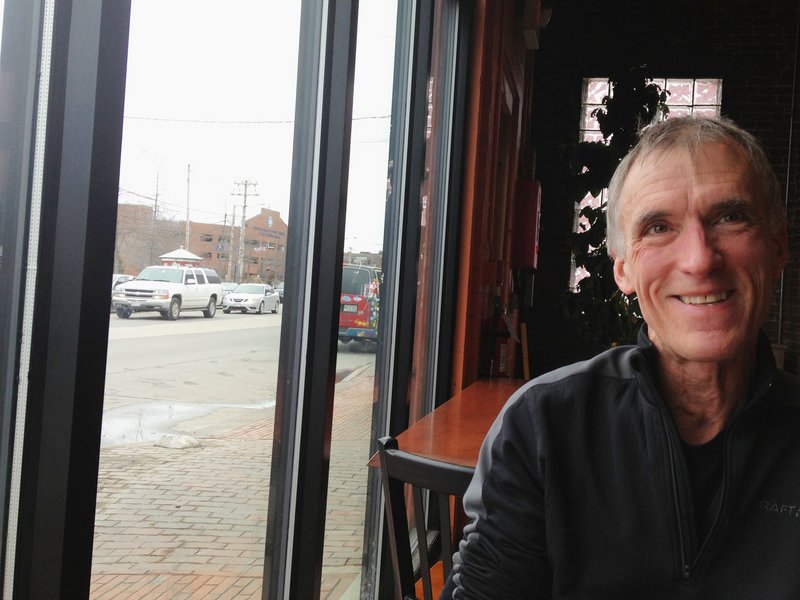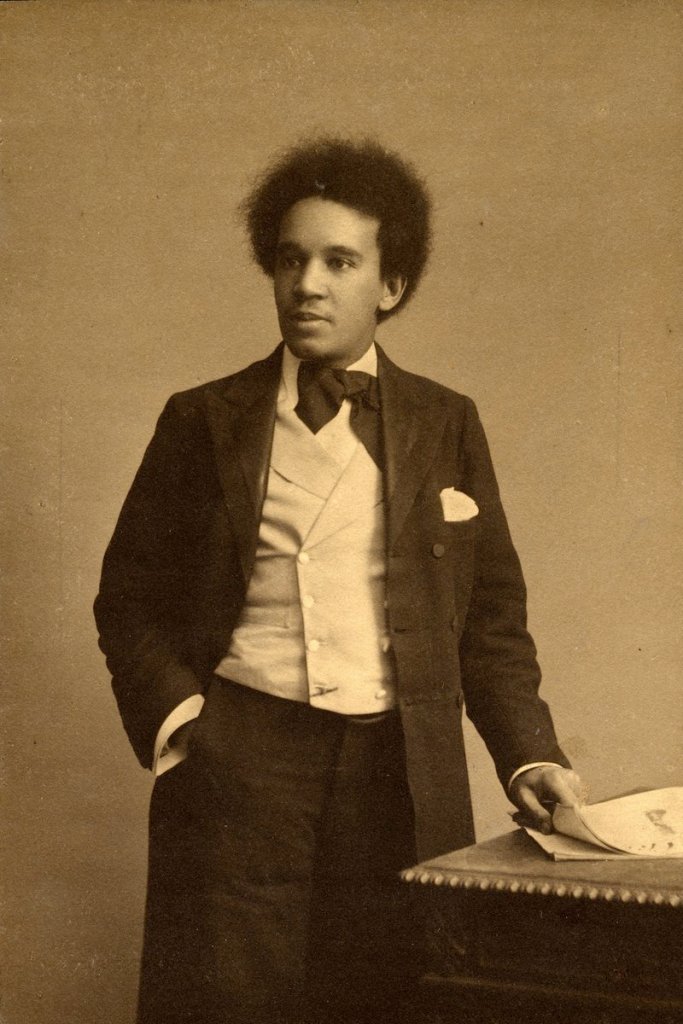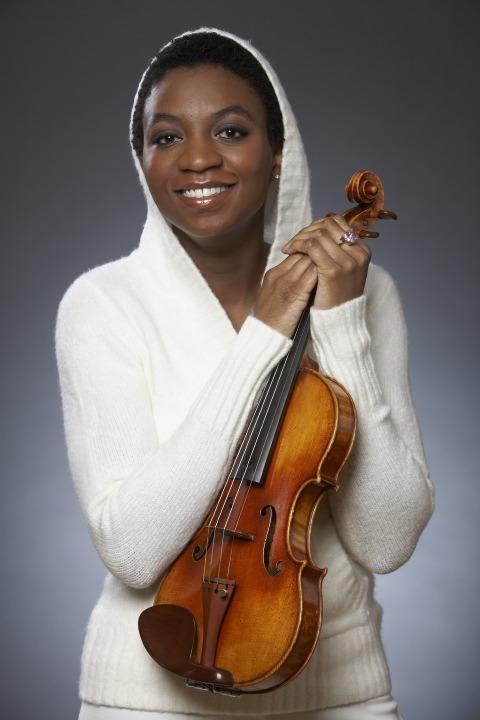His friends and admirers call him dedicated. Chip Kaufmann just shakes his head, and in a private moment wonders if he might be a little crazy.
Not crazy demented, but foolish crazy. As in, perhaps he has finally taken on too big a load.
But he catches himself in that weak moment, looks up from a downward glance and says emphatically, “Part of your duty as an artist is to think creatively. If I am any good, I am thinking up original concepts and programs. The risk is that you do something that completely fails. But it’s a good risk to take.”
The evidence of that risk will be on display this week as Kaufmann hosts the Longfellow Choral Festival at Portland’s Merrill Auditorium. He has planned two full days of music beginning Saturday.
As artistic director of the festival, Kaufmann does pretty much everything. He plans the programs, hires the singers and the musicians who comprise the chorus and orchestra, rents the hall, arranges travel for out-of-town guests, handles all the publicity and takes care of all the fund-raising. He also leads the rehearsals and conducts the music.
If only a handful of people show up and ticket sales fall short of his goal, he carries the deficit.
And this year, he decided to make a movie too.
Just for fun.
Nickelodeon Cinema in Portland will screen Kaufmann’s first attempt at filmmaking, “Samuel Coleridge-Taylor and His Music in America, 1900-1912,” at 1 p.m. Wednesday. The cinema will repeat the movie at 1:30 p.m. Saturday, just before the music begins at Merrill.
Now in its seventh year, the Longfellow Choral Festival performs and records vocal and choral settings of Henry Wadsworth Longfellow’s poetry while also inspiring and commissioning new settings of that poetry. And for good measure, it performs choral music from the Romantic and post-Romantic period, which Kaufmann identifies as generally the early 1800s to the early 1900s.
That’s where Coleridge-Taylor comes into play. He was an English composer who was so successful that in some circles, he was known as the “African Mahler.” One of his most famous and most popular pieces is the four-part cantata “Scenes from the Song of the Hiawatha,” which was inspired by the Longfellow poem.
The Longfellow chorus will perform all four parts over two performances spanning two days, beginning Saturday evening and continuing Sunday afternoon.
It will also offer a matinee performance of additional choral and orchestra works by Coleridge-Taylor, a recital by the students and faculty of Project STEP in Boston, and the winning songs and choruses from the 2013 Longfellow Chorus International Composers Competition.
And then there’s the film.
All of which causes Kaufmann to shake his head.
“This is the biggest thing I have ever attempted,” said Kaufmann, who lives in Portland. “The whole nature of the Longfellow Chorus is to do things that other people don’t do. And there’s a reason people don’t do it. There’s a reason this music falls into obscurity.”
It’s not because the music is not good. To the contrary, the music is, as Kaufmann says, “really great work.” It’s fallen into obscurity because it is out of vogue and largely forgotten.
Modernism in poetry doomed any hope for a Longfellow revival. His poetry is laced with romanticism, and romanticism died with the second World War.
If Longfellow had any chance at all, it was in England. But in terms of lasting popularity, English composers paled in comparison with their contemporaries in Germany, France and elsewhere in Europe.
To boot, it didn’t help that one of Longfellow’s greatest champions was a composer of color.
“But that does not mean this music is not brilliant. It is a forgotten masterwork,” Kaufmann says.
As he did his research on Coleridge-Taylor, Kaufmann found a man he admired so much that he felt compelled to make a movie about him. He enlisted the help of Maine filmmaker Richard Kane, who got on board to help with editing and other technical duties.
Said Kane in an email, “I’m now beginning to realize that this is a very, very special project, worthy of high attention. Chip’s musicianship has come into play in the making of this film about one of the most forgotten and talented composers in our history. As a result, he has created a wonderfully entertaining and historically significant musical.”
Kane urges people to pay attention — to the film, yes, but also to this festival. It’s a rare opportunity to hear significant music rarely performed in modern times. It’s a project of enormous ambition, he said.
“The Portland audience ought to know about this tremendous treat of film, opera, and a newly re-discovered composer of great historical importance from the early 1900s who collaborated with Portland’s own Henry Wadsworth Longfellow,” Kane wrote.
Kaufmann won’t change the course of history with this work. It’s not likely that Coleridge-Taylor or Longfellow himself will return to vogue because of Kaufmann’s efforts.
But he feels good knowing that he is documenting history and giving modern audiences the opportunity to hear something significant.
Kaufmann has aimed high, as he always does. He has assembled an orchestra of 43 musicians and a chorus of 52. He has enlisted dancers and a choreographer for a ballet to accompany the music.
He is bringing in performers from around the country. Internationally acclaimed violinist Tai Murray will perform a Coleridge-Taylor violin concerto. Other guests include tenor Roderick Dixon, soprano Angela Brown and 17 opera singers from Washington, D.C.
This is a big deal to them, to make the trip from Washington to Portland for the performance. It should be a big deal here too.
Staff Writer Bob Keyes can be contacted at 791-6457 or:
bkeyes@pressherald.com
Twitter: pphbkeyes
Send questions/comments to the editors.






Success. Please wait for the page to reload. If the page does not reload within 5 seconds, please refresh the page.
Enter your email and password to access comments.
Hi, to comment on stories you must . This profile is in addition to your subscription and website login.
Already have a commenting profile? .
Invalid username/password.
Please check your email to confirm and complete your registration.
Only subscribers are eligible to post comments. Please subscribe or login first for digital access. Here’s why.
Use the form below to reset your password. When you've submitted your account email, we will send an email with a reset code.